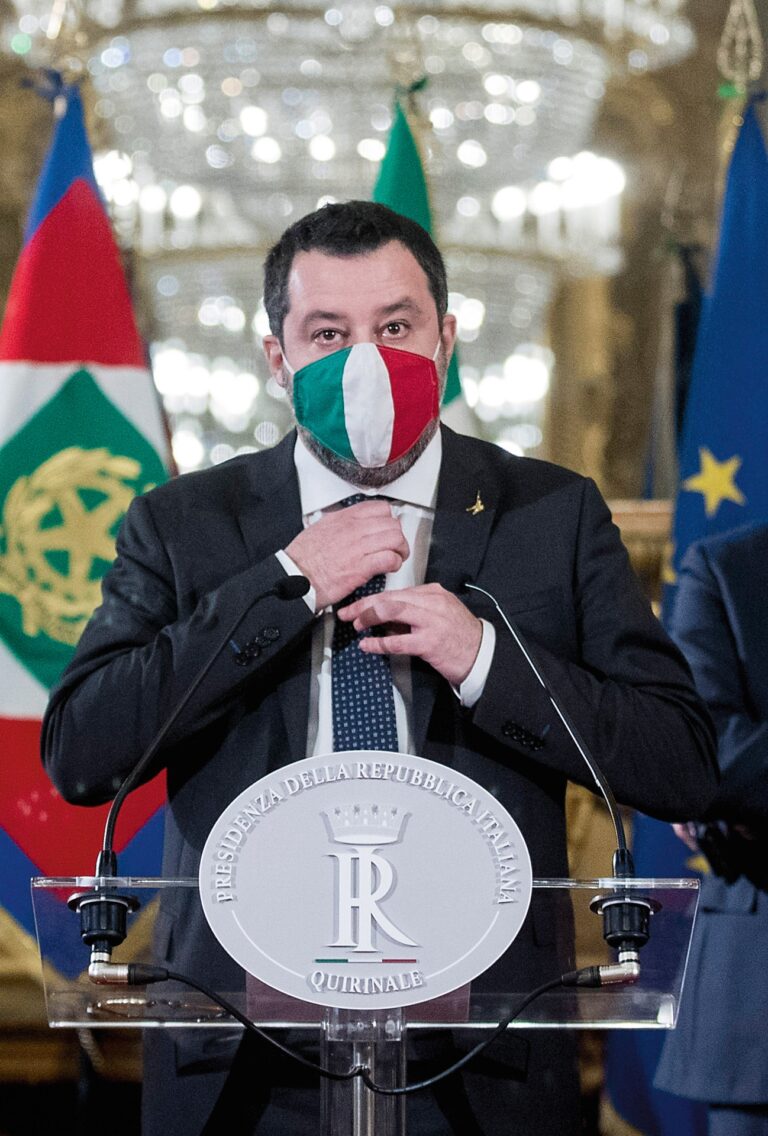
Widespread Italian hostility to sending Ukraine arms has created an unholy convergence between right and left which has plunged Italy's government into crisis and threatens the unity of Nato.
There is even talk of this informal alliance of enemies leading to the creation of a political party some commentators joke should be called "Forza Russia!" (Go Russia!).
Its chief components are pro-Russia "pacifists" of the right and anti-America "pacifists" of the left, and notably, the two party leaders with the most MPs – Matteo Salvini of the radical right Lega and Giuseppe Conte of the alt-left 5 Stelle. Salvini was until recently a vociferous supporter of Vladimir Putin. Conte sees global capitalism and Davos Man as the enemy.
Italy's nascent peacenik movement has the support of many Catholics who agree with Pope Francis that Nato has "barked at the gates of Russia" and trad-left former communists (Italy's was the largest communist party outside the Soviet Bloc) who see Nato as the enemy.
It reflects a widespread opposition in Italy to America and Europe sending arms to Ukraine, prompted by a knee-jerk hatred of America, cynical selfishness, and an ingrained pacifism, partly in reaction to its fascist past.
Last week (Tuesday 21 June), such hostility produced its first major consequence: the largest party in Italy's parliament – 5 Stelle – split in two.
The party's former leader, Luigi Di Maio, who is Italy's foreign minister and supports arming Ukraine, resigned from 5 Stelle because its leader Conte is against. Fifty-one of its 155 MPs, and 11 of its 72 Senators, joined Di Maio to form a new party.
He told a press conference: “We needed to decide on which side of history we wanted to be on — with those on the side of Ukraine which has been attacked, or on the side of the aggressor, Russia.”
Italy's national unity government, headed by ex EU central bank boss Mario Draghi, formed to combat the Covid emergency in February 2021, is a coalition of all the major parties - except Giorgia Meloni's post-fascist-now-conservative Fratelli d'Italia.
It is in favour of Italy sending arms to Ukraine and originally both Salvini, a former interior minister, and Conte, Draghi's predecessor as premier agreed. Both now say: more arms mean only more war.
Di Maio remains in the government but so too do the 5 Stelle ministers loyal to Conte.
For now. But it is impossible to see how they can remain for long.
Indeed, quitting the government may well be the rump 5 Stelle's only hope of avoiding annihilation at the next general election to be held by 1 June 2023.
Support for 5 Stelle has collapsed since it won the most votes at the 2018 general election (32.7 %) to 12% in recent polls. Many blame its participation in the government of Draghi who epitomises its supposed enemy: The Establishment.
The Lega likewise remains in the government, despite a similar collapse in its support from 34.3% at the 2019 European Parliament elections to 15% in recent polls.
If 5 Stelle resigns from the government Draghi might survive as premier but not if the Lega does too.
Meanwhile, support has soared for Fratelli d' Italia - Italy's most popular party in the polls for month now on about 22%.
Though in opposition, it supports arming Ukraine which might prove fatal to its planned alliance at the general election with traditional partner the Lega. So does the post-communist Partito Democratico which is the government's third largest component - as does Silvio Berlusconi's Forza Italia! the fourth largest. Berlusconi, though "deluded" by his old friend Putin – he says - Ukraine must "understand his reasons".
Paradoxically, though 5 Stelle and the Lega are both doing very badly in the polls the pacifism they avow has huge popular support.
A clear majority of Italians consistently oppose sending arms to Ukraine in the polls and a recent Europe-wide poll by the ECFR - a Berlin based think-tank - found that a similar majority(52%) support peace - more than in any other EU country – even if that means dismemberment of Ukraine.
That Italy has sent even fewer arms to Ukraine than tiny Latvia whose population is the same as Milan's shows how ludicrous is Italy's daily shouting match on whether to arm Ukraine – and the mayhem this is causing in its political parties.